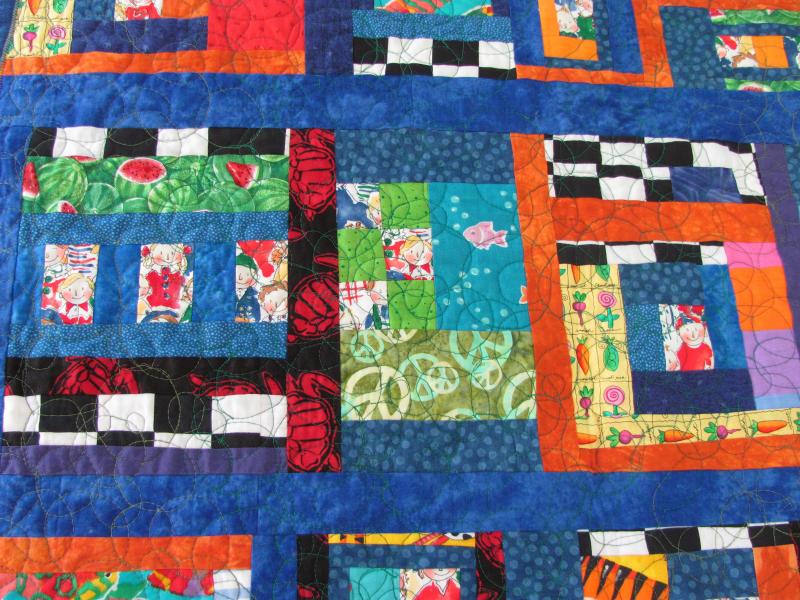Shaken Baby Syndrome: My Front-Row Seat at a Bitter Professional Debate
 On an early spring afternoon in 1996, the adult niece of a friend was watching a baby girl who seemed to choke on a bottle and quit breathing in her arms. At least that was her story: At the hospital, doctors said the infant had been violently shaken, within minutes of the breathing problems. My friend's niece was convicted of child abuse, to the shock of her family, friends and neighbors.
On an early spring afternoon in 1996, the adult niece of a friend was watching a baby girl who seemed to choke on a bottle and quit breathing in her arms. At least that was her story: At the hospital, doctors said the infant had been violently shaken, within minutes of the breathing problems. My friend's niece was convicted of child abuse, to the shock of her family, friends and neighbors.
Then the "Boston nanny" case hit the headlines and stayed there for a year: In a televised trial, 19-year-old British au pair Louise Woodward was convicted of second-degree murder (later reduced to manslaughter) for the death of an 8-month-old boy who she claimed had quit breathing in her care. The doctors were sure the child had been shaken to death.
As a technical writer and occasional journalist, I saw little choice but to start researching the medical thinking behind both convictions. What I found was so startling I've spent 15 years now educating myself and writing a book.
During that time I've watched a very real professional debate about shaken baby syndrome polarize and escalate. A growing chorus of critics is now arguing that the classic model suffers from two flaws:
Specificity of the symptoms. While it's well known that abuse can cause the intracranial bleeding and swelling that defines shaken baby syndrome, the pattern can also result from any of a long and growing list of legitimate medical conditions. This development calls into question decades of convictions based on the presence of the brain injury alone, with no bruising, red marks or other signs of abuse.
Timing of the symptoms. The classic model says that symptoms of a serious shaking are immediately apparent, often leaving law enforcement with a single suspect: the caretaker who dialed 911. Experience has now provided a handful of documented cases, however, where serious symptoms emerged only hours after injury (see, for example, the letter from a pathologist on the home page of my web site).
The critics are still in the minority, but they are publishing in medical journals and testifying in court. In 2007 the Innocence Project of Wisconsin won the reversal of a shaking conviction, with the argument that the burgeoning medical debate constitutes new evidence (my review of a memoir about the defendant's ordeal). In the wake of that decision, law professor Deborah Tuerkheimer at De Paul University did her own research and concluded that the Innocence Project was correct. The New York Times ran her opinion piece in 2010, and then a magazine cover story on infant shaking in 2011.
This past fall, Supreme Court Justice Ruth Bader Ginsburg inserted the criticism of shaken baby theory into the court record, in her unconventional minority opinion on the Shirley Ree Smith decision, the first shaken-baby case I know of to have reached the high court. Her comments appear at the end of the full opinion.
Last week I interviewed Dr. A. Norman Guthkelch, the British neurosurgeon who first proposed shaking as a mechanism of infant brain injury, in a 1971 article in the British Medical Journal. He told me he is "horrified" that intracranial bleeding and swelling is used to diagnose abuse with no other signs of violence. "I am very distressed about what's going on in the courtroom," he said, "the rigid thinking that seems to have set in."
Still, most child-abuse professionals reject the legal criticisms. The National Center on Shaken Baby Syndrome has posted a collection of letters written in rebuttal to the New York Times coverage, for example, and Professor Tuerkheimer has been criticized harshly in print and at conferences. I don't see an end to the debate soon.
This project has been an extraordinarily tough sell, but I'm reinvigorated by my talk with Dr. Guthkelch, and I'm optimistic that the story, and the debate, will reach a wider audience. I especially hope our medical and legal systems can find a way to acknowledge and address 30 years of convictions based on sincere but flawed medical opinion.
For a quick story about an accused family eventually exonerated, please see the prologue to my book.
For an article-length treatment with more details about the medical issues, see this posting about a probable choking misdiagnosed as shaking—paramedics removed a rubber band from the child's throat, but the babysitter still went to prison.

